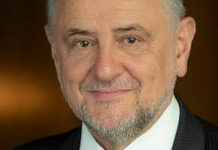
By Nathan Lewin
A headline declares that “outrage erupt[ed]” over a proposal that a Chabad-sponsored menorah be displayed at the village center of Miami Shores, Fla. At an April 6 meeting of the Town Council, Mayor Crystal Wagar’s recommendation that the display be authorized was opposed by Village Attorney Richard Sarafan. According to news stories, Sarafan asserted that public display of the menorah would be illegal and would subject the town to a lawsuit. Heeding its lawyer’s advice, the council shelved the plan.
The true nature of this outrage cannot be appreciated without background information that I personally have and now recount to demonstrate Sarafan’s ignorance and how he flouted binding constitutional law.
I was consulted in December by Rabbi Asher Sossonko, the Chabad-Lubavitch representative in Miami Shores. He told me that the town had raised legal objections to the display of Chabad’s menorah in a public square. I responded to Rabbi Sossonko with a letter dated Dec. 7, 2020, a few days before Chanukah was to begin. In the letter, I cited the 1989 decision of the United States Supreme Court that had upheld the constitutionality of the menorah in Pittsburgh’s holiday display. I noted that I had presented that case to the Supreme Court for Chabad.
More conclusive than the Supreme Court’s ruling was a unanimous decision by 11 federal circuit court judges in 1993 that ruled that Chabad in Atlanta had a constitutional right — over the opposition of the State of Georgia — to display a menorah in the rotunda of the State Capitol Building. Florida is in the same federal judicial circuit as Georgia, so there is no doubt that Miami Shores is obliged to follow the Atlanta decision. I cited that case in my letter and also noted that I had personally argued before the 11 judges on behalf of Chabad.
I concluded in my letter that “Miami Shores would be joining many other communities if it authorized the display of a Chabad Hanukkah menorah” and asked the rabbi to “make this letter available to officials of Miami Shores,” who could call me if they wanted “to discuss the matter.”
I was called by Wagar after the holiday; we had a phone conversation on Feb. 24. She had obviously read my letter. In a very cordial conversation, she expressed agreement with my conclusion. She said she planned to raise it with the town council shortly, even though Chanukah 2021 was still far off. I assumed that no competent lawyer who read the cited decisions, even if previously totally unfamiliar with constitutional law, could possibly deny the constitutional right that 11 federal circuit judges of the Court of Appeals for the Eleventh Circuit had announced in the Atlanta case.
I was obviously wrong. Lawbreakers are traditionally told that ignorance of the law is no excuse. Is there an exception for village attorneys?
Nathan Lewin, of Washington, is a criminal defense attorney with a Supreme Court practice who has taught at Georgetown, Harvard, University of Chicago, George Washington and Columbia law schools.





